Plato, Gödel, Spinoza, Ahab
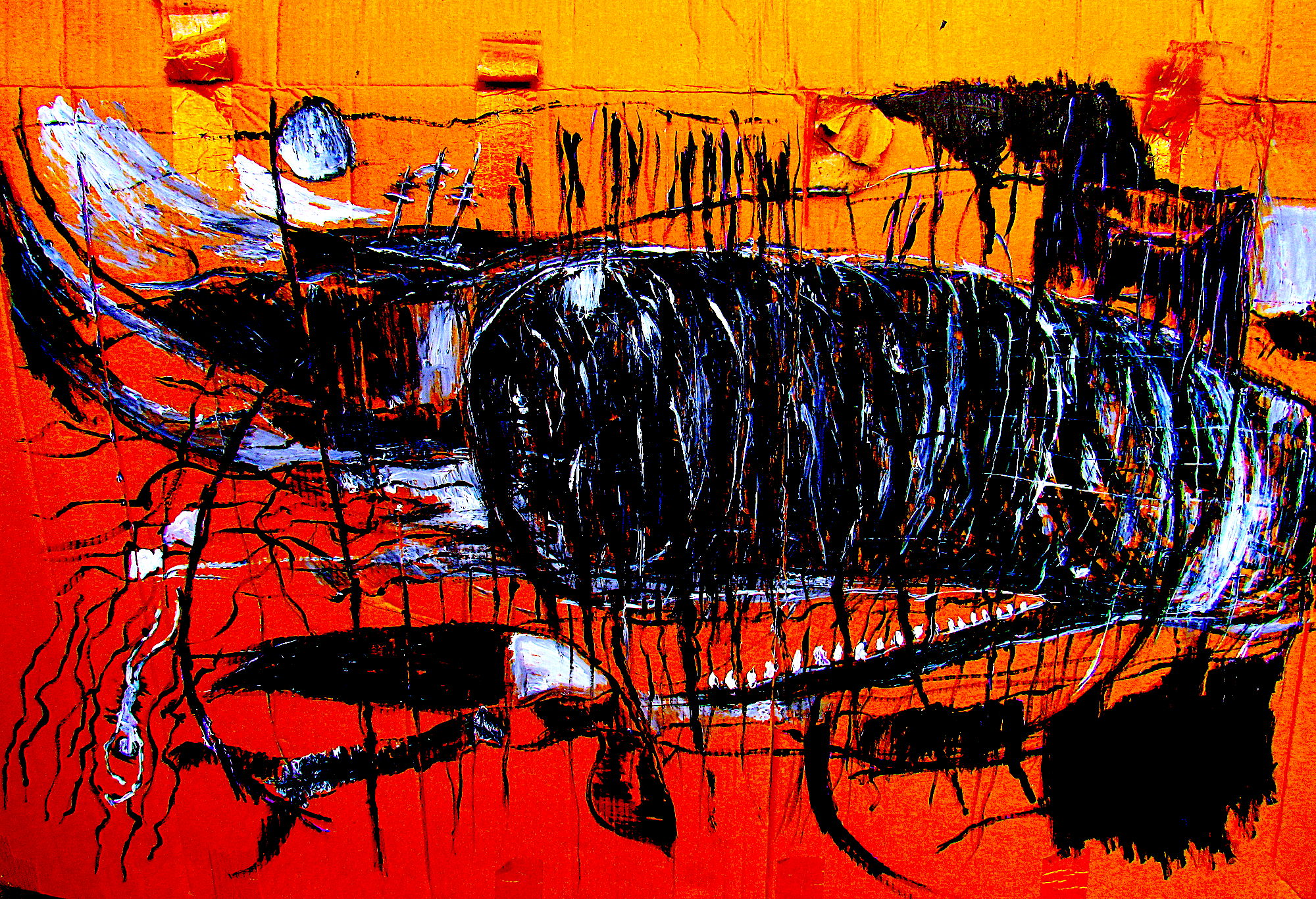
Interview by Richard Marshall
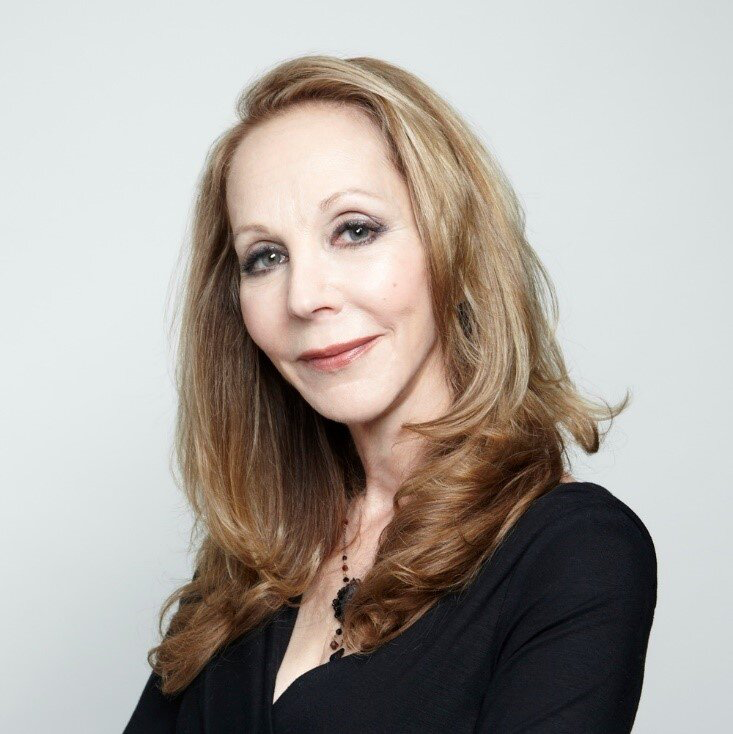
'Philosophical advances in epistemology and in ethics profoundly shape our points of view. We don’t see them precisely because we see with them. It’s like the fish who responds to the question “How’s the water today?” with “Water? What’s water?”'
'Gödel proved that, in any formal system that is rich enough to express arithmetic, there are truths that are expressible within it that can’t be proved. That’s the First Incompleteness Theorem. The second is that one of the things that can’t be proved within such a formal system is its own consistency.'
'Since Gödel had interpreted his First Incompleteness Theorem in the light of his mathematical realism, then yes, postmodernists are barking up the wrong tree. The proof shows that there is a mathematical truth—the Gödel sentence—that is not provable within the system. He’s not in any way attacking the notion of objective truth in mathematics. Quite the contrary.'
'Spinoza, the great monist, objected to dualities in just about every domain. He was everywhere interested in fusing, in unifying, what seemed to be polarities, collapsing dualities. The supernatural is fused with the natural, the ontological with the logical (which is entailed in his a priori methodology), the mental with the physical, the intellectual with the emotional, the normative with the descriptive.'
'Maybe Reality really is inconsistent with the reality of the self, and maybe then, driven by our conatus, we ought to resist Reality. That’s the path that Ahab takes, and it doesn’t end well for him, nor for those under his leadership, who have relinquished their wills to his. After all, why is it even worthwhile to struggle to know Reality, to struggle after anything at all, if the self that’s motivating the struggle is ultimately nothing at all?'
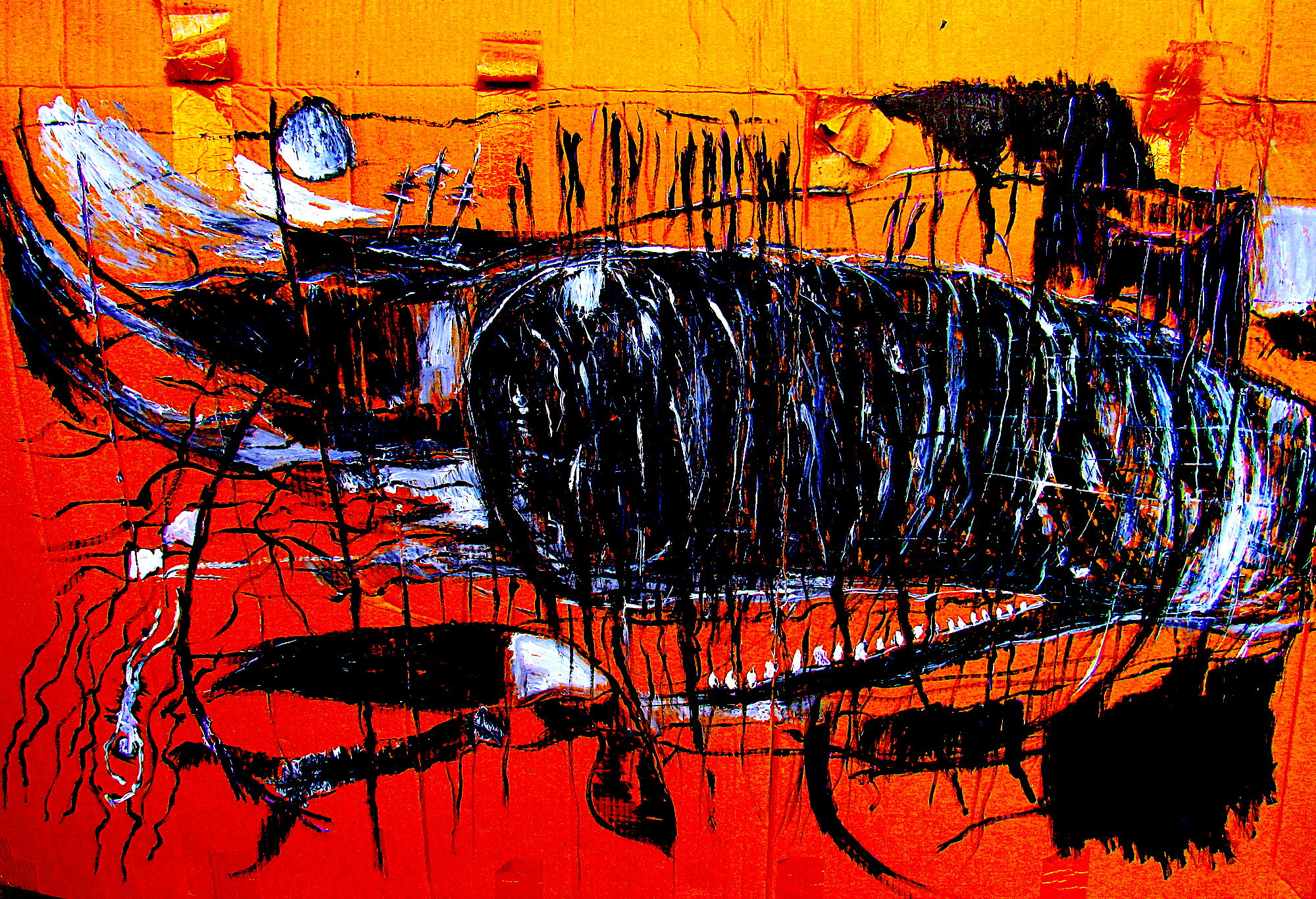
Rebecca Newberger Goldstein is an American philosopher, novelist and public intellectual. She has written ten books, both fiction and nonfiction. Here she discusses the relationship between science and philosophy, the nature of philosophical progress, Gödel’s theorems, Incompleteness, Einstein, Realism and postmodernism, Gödel and Wittgenstein, Spinoza, Spinoza and his appeal to imaginative writers, the Spinoza War, and Moby Dick.
3:16: What made you become a philosopher?
Rebecca Newberger Goldstein : I started out mostly interested in math and physics. There were problems that obsessed me in both fields—How can math be a priori? How can quantum mechanics be connected to a reality that is recognizably our own? I discovered, while in college, that these were actually philosophical problems. My senior year in college I went to speak to one of my professors, Sidney Morgenbesser, an amazing guy. He was the Socrates of his day. Socrates never published anything, but instead engaged in deeply probing dialogues. That was Sidney’s m.o. as well. Over the course of several long conversations Sidney convinced me that I was a philosopher, rather than a scientist. His clinching argument was that scientists are like the bourgeoisie, never questioning the system, whereas philosophers were like socialists, always examining the system critically: even if it seemed to be working, ought it to be working? That argument struck home. I basically applied to graduate school in philosophy on the strength of Sidney’s metaphor.
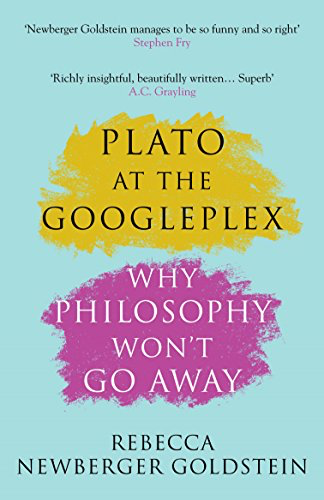
3:16: In your book ‘Plato at the Googleplex’ you have Plato brought into our century to discuss philosophy with our contemporaries. So first, can you say what you take philosophy to be and why you think it hasn’t gone away and isn’t going away soon?
RNG: I think that philosophy is the systematic and rigorous investigation of one of the deepest urges that we humans have, which is the urge to get our bearings in the most general sense possible. In particular, (1) We want to know where we are. What is the nature of this universe in which we find ourselves? What fundamentally different kinds of things, belonging to different ontological categories, are there, and how do they operate? 2. We want to know our own place in the universe, whether we’re made of the same stuff, are a special category of being, and whether the universe itself has any attitudes towards us. 3. We want to know what we are meant to do with our lives. We want to know what it is to live a life worthy for a human to live, a good life.
The first two questions are ontological, the third is normative. Science, as it eventually developed, has the lead role in answering the ontological questions, but science is often pushed on by philosophy, in its critical probing role. And the more subtle the science becomes, the bigger the role for philosophy, since it falls to philosophy’s special techniques to figure out what is and isn’t entailed by the science. For example, what changes are we required to make to our concept of time in light of Relativity Theory? And as far as the normative questions go, there the ball falls squarely in philosophy’s court, though it’s sometimes advancements in science and technology that generate the balls, that is, new normative questions.
Consider the normative questions generated by advances in AI, or the question of what obligations we have to future generations, given the threat of climate change. As long as science and technology advance, philosophers will have new questions to work on.
3:16: You place Plato in rooms having philosophical debates with all sorts of people but you never have him decisively concluding a debate or argument. For those hostile to philosophy this might be a hostage to fortune – it suggests that philosophy can’t decide anything and actually we would be better off listening to scientists, historians and novelists. Why should we heed the philosopher in our time if not even Plato can answer its questions? What do you say to those physicists who say philosophy is just pointless and has been supplanted by – well, in their case – physics?
RNG: When it comes to ontology, I would argue that it’s science that plays the leading role. But I’d have to offer a philosophical argument to support that conclusion. I'd first have to both differentiate what is essential to science, how it differs from other fields of inquiry, including philosophy, and I’d have to argue for scientific realism, that is argue that science is in the business of ontology. Both of those are conclusions that can’t be empirically established, i.e. they are philosophical. So one can’t even make the case for science, ontologically speaking, without engaging in philosophy. And as far as the normative questions go, we are entirely in the philosophical sphere. And here I do think philosophy has offered us answers, answers which have as fundamentally changed our lives, and for the better, as the technological advances that science has given us.
As just one example, consider the idea of human rights. One of my points in my having Plato engage in those philosophical dialogues in which it’s not he who supplies the answer, but instead he is rather surprised by being philosophically instructed by some “regular” people, was to demonstrate the progress we’ve made since Plato, progress that has been disseminated and seeped into the points of view of non-philosophers. In the first dialogue a rather down-to-earth character, a media escort, explains to Plato in very commonsensical terms why slavery is wrong. Plato had argued that it’s wrong for Greeks to enslave other Greeks, which was an advance over the norm taken for granted by his society, but he never universalized the conclusion. Nor did Aristotle, who argued that some people are naturally suited to be slaves. So if I don’t have Plato having all the answers it’s often to show progress made in the millennia since he lived, or to show that our new conditions, many of them created by scientific and technological advances, generate new philosophical problems--in other words to show that philosophy will never go away. My showing Plato to be often instructed and/or stumped is meant to challenge the view that philosophy remains static.
3:16: So this leads to one of the issues you raise in the book - the notion of philosophical progress. So what do you take to be the progress philosophy has made since Plato and why is it invisible to many, unlike science?
RNG: Philosophical advances in epistemology and in ethics profoundly shape our points of view. We don’t see them precisely because we see with them. It’s like the fish who responds to the question “How’s the water today?” with “Water? What’s water?” When people hold the view, for example, that science has discovered that simultaneity is not absolute, as counter-intuitive as that seems, or that chattel slavery is an abomination, which once also had seemed counter-intuitive, they don’t realize the laborious philosophical reasoning that had laid the groundwork for their views. It takes philosophical work to claim that science can correct our fundamental views of the way the world is. It takes philosophical work to claim that we can discover, without consulting any holy books (that in fact sanction slavery), truths about the way humans can and can’t be treated. Philosophy is committed to the view that we can use human reason to come to ethical conclusions, overcoming biases, tradition, and religious authority. Just the other week the Pope gave his approval to civil unions for gay people. That is the slow progress of the philosophical idea of human rights working its way out. You could even consider such changes in ethical attitudes, eventually making their way even to the Vatican, as philosophy’s own technological products, the practical application of philosophical conclusions, analogous to the technological goodies that have come from science. In fact, you can even regard science itself as one of philosophy’s technological products, the practical application of certain epistemological conclusions.
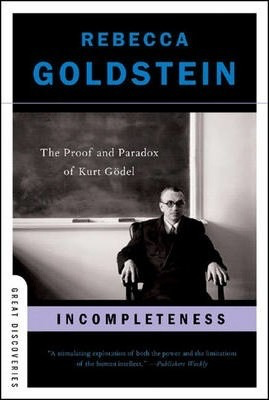
3:16: You’ve written about Gödel’s incompleteness theorems. Many of us have heard of these but some like myself are not clear what’s at stake and why they’re up there with Einstein’s relativity and Heisenberg’ uncertainty. So can you take us through this. First, can you tell us something about the man Gödel – as you put it, he’s probably the most famous person we might not have heard of. Was he a philosopher, a logician or a mathematician? He didn’t believe in natural science nor Darwinism and was a dualist when it came to the mind body issue wasn’t he? This seems very strange.
RNG: Gödel’s theorems are addressd to the fundamental metamathematical problem: what is mathematics about? Is it descriptive of a mathematical reality (realism), or is it simply a matter of laying down the rules of a formal system and deriving the implications (formalism)? If it’s the latter, then there cannot be mathematical truths that aren’t formally provable. Every formal system would have to be complete, that is, able to generate proofs of all the truths that are expressible within it. Gödel proved that, in any formal system that is rich enough to express arithmetic, there are truths that are expressible within it that can’t be proved. That’s the First Incompleteness Theorem.
The second is that one of the things that can’t be proved within such a formal system is its own consistency. Gödel’s First Incompleteness Theorem sounds the death knell of formalism, at least as I’ve just defined it, which was what Hilbert had meant by formalism. Formalism had been presented by people like Hilbert as a way of making sure that the terrible paradoxes of set theory would be expunged. We’d relied on intuitions that seemed very reasonable and yet they had allowed paradoxes to erupt. So if we simply decreed that all mathematics must be performed in formal systems, with algorithmic rules so automatic that they can be programmed into machines, we could cease relying on intuitions that could be so faulty as to allow for paradoxes. That was the urgency behind Hilbert’s formalism, but of course there was also just the old mystery of the fundamental metamathematical question about the very nature of mathematics, to which formalism offers a nice crisp answer.
Does Gödel’s first incompleteness theorem then in itself prove mathematical realism? Well, for somebody like me, much inclined toward realism in the first place, I'm inclined to think so. But it’s still incumbent on a realist to say exactly what realism commits you to, and that isn’t easy. It’s quite straightforward to say what a formalist view like Hilbert’s commits you to, which was certainly to exclude a result like Gödel’s. But there are still moves for a neo-formalist to make, and those who are temperamentally opposed to mathematical realism will exercise their ingenuity in making those moves. (One should never underestimate the role of temperament in philosophy.) Gödel had wanted to make metamathematics as conclusively provable as mathematics itself. But despite his efforts, and the important mathematics he produced in the process, in the end mathematics is mathematics and philosophy is philosophy. I’m not saying that his results are philosophically irrelevant. Of course, they’re relevant. But I’m also not prepared to say that they’re as philosophically deterministic as he had perhaps wanted them to be.
You ask about Gödel the man. From the published discussions that he’d had with the logician Hao Wang, it seems that he considered himself, first and foremost, a philosopher. And in that regard—again, going on the conversations with Wang—he considered himself a failure. Of course, the set to which he was comparing himself was exceedingly elite, philosophers like Plato and Descartes, who, as he put it, both had a breakthrough that entirely disrupted their previous point of view and gave them an entirely new way of orienting the world and themselves within it. In both his objective success and his subjective sense of failure, you get a glimpse of what he was like. He was an audaciously ambitious philosopher.
You also asked about his empirical skepticism. Yes, he seemed to have been one of those extreme rationalists who had their heyday in the seventeenth century. He seemed to believe, along with Descartes, Spinoza, and Leibniz, that the standards of certainty that apply in mathematics ought to be applicable throughout all fields of knowledge. When I was a graduate student at Princeton, Gödel was alive, squirreled away in the Institute for Advanced Study, quite a figure of mystery. I met him once, briefly but consequentially for me, as I write about in Incompleteness: The Proof and Paradox of Kurt Gödel. It was discovered that every book by or about Leibniz in the Princeton University library had been checked out to a K. Godel. In those days the covers of library books had sleeves with little cards that got stamped with the name of the borrower, so you could see the whole history of who had checked out the book. Soon the cards with the “K. Godel” all got stolen as souvenirs. No, it never occurred to me to take one. I wish I had.
3:16: So what did he do - what was the surprise in logic that he delivered to contradict Wittgenstein’s proposition 6.125 in his Tractatus that there couldn’t be surprises in logic?
RNG: Perhaps Gödel accepted Wittgenstein’s point that there can’t be any surprises in logic. Given that Gödel wasn’t a mathematical logicist, someone who believes that all mathematical propositions are fundamentally tautologies, but rather he believed that mathematical statements are substantively descriptive, he wouldn’t have felt the need to object to 6.125. The logical positivists had been committed to the logicist metamathematical position. Their claim was that all meaningful non-tautological propositions must be empirically verifiable, which meant that mathematics had to be either empirical—which was John Stuart Mill’s position—or tautological. They chose the latter, which is why the word “logical” got appended to the name of their movement.
3:16: Wittgenstein never accepted that Gödel had proved what he had proved did he. What reasons had he for this? Was it something to do with the fact that paradoxes were acceptable to him in some sense? And how did Gödel interpret his theorem?
RNG: I’m not an expert on Wittgenstein’s views on metamathematics (nor his views on anything else). To become such an expert has always seemed to me a lifetime project in itself. So I hesitate to say too much. To the extent that Wittgenstein was a logicist, he would have found the First Incompleteness Theorem a conjuring trick, which is I believe what he had called it. But he could have had other reasons—not the logicism of the positivists—for denying that the First Incompleteness Theorem had any metamathematical significance. He might have had complicated views, for example, for believing that there is no metamathematics. The only thing I feel confident to say regarding Gödel and Wittgenstein is that Gödel privately expressed the view that Wittgenstein had advanced “a completely trivial and uninteresting misinterpretation." But maybe Gödel, too, was not prepared to take on the demanding project of interpreting Wittgenstein.
3:16: Both Gödel and Einstein rejected the ‘subjectivist turn’ that many thought they had executed along with Heisenberg and Bohr. How do you see this issue; why did they reject subjectivism and were they right? And why has postmodernism been so interested in Gödel – are they just barking up the wrong tree?
RNG: Since Gödel had interpreted his First Incompleteness Theorem in the light of his mathematical realism, then yes, postmodernists are barking up the wrong tree. The proof shows that there is a mathematical truth—the Gödel sentence—that is not provable within the system. He’s not in any way attacking the notion of objective truth in mathematics. Quite the contrary. The way that you see that the Gödel sentence is true, even if unprovable, is that the sentence has two different meanings. It’s both an arithmetical sentence and, simultaneously, self-referentially is saying of itself that it isn’t provable. The complicated details of the proof lay in getting arithmetical sentences to be also saying such things about themselves as whether they are provable or not. What the proof establishes is that, if the system is consistent, then the Gödel sentence can’t be provable.
So the First Incompleteness Theorem is actually a conditional statement: if the system is consistent (and if it isn’t, then it’s bloody useless) then the Gödel sentence is unprovable, which is exactly what it says it is. So it’s true because it’s unprovable. And he proved that conditional. But since the Gödel sentence is an arithmetical proposition, he’s proved that, if the system is consistent, then an arithmetical sentence that is expressible within the system is true and unprovable. And there you have the First Incompleteness Theorem. He’s produced an arithmetical sentence which is both true and unprovable, if the system is consistent. This proviso, if the system is consistent, brings us to the Second Incompleteness Theorem, which is that you can’t prove within a system that the system is consistent. Why? Because then, by modus ponens, you’d have a proof of the Gödel sentence. So if you could prove consistency, you’d have a contradiction with the First Incompleteness Theorem. Anyway, you can see that it’s provability that he’s saying is limited, not our knowledge of truth. He’s prying apart the syntactic notion of provability and the semantic notion of truth. So that’s why the postmodernists are, as you nicely put it, barking up the wrong tree.
They bark up the wrong tree when it comes to Relativity Theory as well. Einstein was as strong a scientific realist as Gödel was a mathematical realist. Michael Frayn has an acclaimed play, Copenhagen. It features Niels Bohr and Werner Heisenberg. I saw it when it came to Broadway, expecting to love it, but it bugged the hell out of me in several ways. Here’s one: There’s a long section in which Bohr is speaking about how, with quantum mechanics, “we put man back into the center of the universe,” that all truth is dependent on the human point of view. Heisenberg interjects, “It starts with Einstein,” and Bohr solemnly repeats, “It starts with Einstein.” Hogwash. There is a complete misunderstanding of what is meant in Relativity Theory by a frame of reference and of there being multiple frames of reference with none of them privileged. When I was writing Incompleteness I interviewed some mathematicians at the Institute who had witnessed the famous friendship between Einstein and Gödel. I remember Armand Borel telling me with a shrug, “They didn’t want to speak to anybody else. They only wanted to speak to each another.” Am I suggesting that their strong realist inclinations both inspired their unique contributions while also making them feel alienated from the bulk of their colleagues? Perhaps I am.
3:16: This brings us back to Plato in a way – was Gödel a Platonist about abstract reality, in particular was he a mathematical realist and why was this an important part of what he was doing when he discovered his incompleteness theorems? Was his mathematics an expression of this Platonism in a sense?
RNG: In “What Is Cantor’s Continuum Problem?” Gödel famously wrote: "But, despite their remoteness from sense experience, we do have something like a perception also of the objects of set theory, as is seen from the fact that the axioms force themselves upon us as true. I don't see any reason why we should have less confidence in this kind of perception, i.e., in mathematical intuition, than in sense perception.” This is a bold and provocative statement of Platonism, to the extent that Platonism means that abstract objects like sets objectively exist and their existence explains the truth of the propositions that mathematicians discover. So whether or not Gödel’s First Incompleteness Theorem was inspired by a prior commitment to Platonism (as I suspect) or whether his Platonism came later (as others have argued) by the time he wrote these quoted lines he was a Platonist, committed to the independent existence of abstract entities, which “despite their remoteness” we could gain immediate access to by the axioms that force themselves on our perception in a way analogous to sense perception.
He is, in this one line, trying to meet head on the epistemic criticism of Platonism such as expressed by Paul Benacerraf and Hartry Field, namely that Platonic entities, residing in a realm outside of space-time, would have to be causally isolated from us. How can any causal interactions occur if one half of the interactors are outside of space-time, “remote” as Gödel puts it? Gödel almost seems to be falling back on a Humean conception of causality here. The only distinction between impressions and ideas for Hume lies in the vivacity of the former. On the basis of that qualitative distinction we judge the former to be caused by objects present to our sense organs, and the second not to be, but rather to be ideas produced by either memory or imagination. There has been a lot of parsing apart of these few lines, beginning with Charles Parson’s distinction between "intuiting of" and "intuiting that," and I’m hardly denying that Gödel’s bold and provocative statement raises many questions. But what seems abundantly clear is Gödel’s commitment to Platonism. I think it’s already quite clear in the First Incompleteness Theorem, but others disagree.
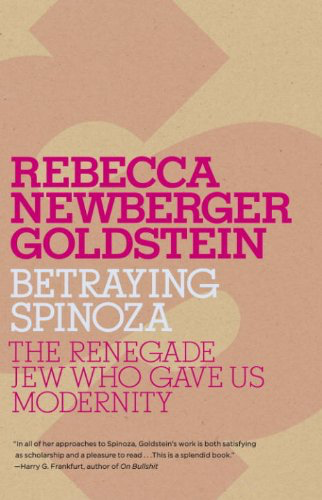
3:16: Spinoza is another great rationalist philosopher you’ve written about with admiration. One area of interest is his approach to the mind body problem and the place of emotions in understanding this. Can you sketch for us Spinoza’s position in this and how his non-empiricist approach nevertheless has found to be vindicated to some extent by his thinking?
RNG: Spinoza, the great monist, objected to dualities in just about every domain. He was everywhere interested in fusing, in unifying, what seemed to be polarities, collapsing dualities. The supernatural is fused with the natural, the ontological with the logical (which is entailed in his a priori methodology), the mental with the physical, the intellectual with the emotional, the normative with the descriptive. You ask me specifically about the fusions of the mental with the physical, pace Descartes, and the intellectual with the emotional, pace just about everybody, starting with Plato. There is, according to Spinoza, only one ontological order, the items in it following the strictest determinism, since for him the causal order is one and the same with the logical order. This, of course, was an idea that Hume went after pretty effectively. But that’s how Spinoza saw it. A causes B if and only if a complete knowledge of A logically entails the existence of B. We never entirely attain that complete knowledge since it would require our knowing the entire infinite system that is Deus sive Natura, (“God, which is to say nature”) and we, being finite, cannot. So we fall back on lesser notions of causality. And these lesser notions of causality give us our two conceptual systems, which conspire to produce the illusion of duality. We carve the one system up into physical bodies and we carve it up into mental ideas and the minds whose ideas these are. When we think of the former, we use such concepts of causality as force, rest and motion. When we think of the latter we think in terms of the intentionality of desire, of pleasure and pain.
Applying these two different conceptual schemes it seems to us that we have two orders of things, and we get caught up in trying to understand how they are related. We end up with the mind-body problem that Descartes bequeathed. But we are being misled by our own finitude and the dual conceptual systems that are not the measure of the world but the measure of our own finitude. Spinoza argued that we’ll never be able to reduce the mental to the physical, not because of Cartesian dualism but because these two conceptual systems don’t produce one-to-one correspondences between the mental and physical orders; they don’t carve up the one system in congruent ways. There is an intrinsic incommensurability.As far as the second fusion is concerned, I think it’s necessary to bring in Spinoza’s concept of conatus, the striving of each thing to persist in its own being and to flourish. For Spinoza conatus is baked into each thing’s identity, so that we don’t even have to provide a reason for why each thing tries to persist in its being. It wouldn’t be that thing if it didn’t. Motivation is a logical fact, tantamount to x=x. So each of us is necessarily striving to persist and to flourish. When we feel our power to persist and flourish increasing, that is pleasure. When we feel that power deceasing, that is pain. He then goes on to define all the emotions accordingly.
So, for example, love for X is the sense that my power to flourish is increasing due to X. Now we come to understanding and his claim that nothing increases our power to flourish more than the understanding. To understand is therefore to feel pleasure and to love whatever enables this pleasure, which is ultimately Deus sive Natura, the ultimate object of our understanding. So it’s not merely that the emotions are involved in our understanding of the so-called mind-body problem. It’s that the emotions are involved in our understanding of everything. All states of understanding are simultaneously emotional states according to him, expansively pleasurable emotional states. So if we want power, if we want pleasure—as we must, given the conatus that is one with our identity— then we must want understanding beyond all else. He seems to be right that we feel good when we think we’re understanding things. Unfortunately, I’m afraid that we feel just as good when we falsely think we understand things as when we truly understand them. The believer in some massive conspiracy theory, say QAnon, that gives him a key, he falsely thinks, to understanding everything that before had baffled him can experience intense pleasure.
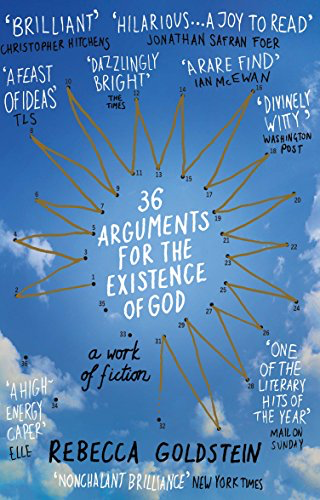
3:16: You’ve written about his appeal to imaginative writers – yourself included – yet Spinoza wasn’t interested in the arts was he? Why wasn’t he – after all, as you say, Plato, another of your great rationalists, wrote profoundly abut the arts and beauty? Why were the arts nothing of importance to Spinoza and do you think this diminishes his philosophy in some way? And why did he nevertheless appeal to so many poets and writers?
RNG: You’re right that Plato thought that beauty, our capacity to perceive it and be moved by it, is essential to making progress in understanding, and Spinoza did not. For Spinoza the progress of the understanding is a strictly deductive process—“For the eyes of the mind, whereby it sees things and understands, is none other than proofs.” There may be beauty to be found in these proofs, but we don’t have to rely on any appeals to beauty to get on with them, rather than just strict logical necessity. So for Spinoza, the arts are perfectly harmless pleasures and therefore one should partake of them as one wants, with only “gloomy superstition,” that is, institutionalized religions, trying to censor them. But don’t mistake the arts as having anything to offer the understanding.
It’s different for Plato. Beauty has an essential cognitive role to play, and for this very reason, the arts can be dangerous. Going for aesthetic results that are detached from truth is a dangerous game to play, and artists who aren’t philosophically responsible—according to him, the majority of artists—are therefore dangerous. Plato was both respectful and wary of beauty’s persuasive power. I think he would have been interested in the halo effect which was discovered by psychologists. Beautiful people are perceived as being more virtuous. So, too, Plato had argued, beautiful art can convince us of its own truth-telling virtue. So in both the Republic and the Laws he advocated for strict limitations on what artists should be allowed to produce, which of course is a chilling idea to all who love art. He famously banished the epic poets from his utopia in the Republic. Plato's attitude toward the arts reminds me of a quip from the martyred Soviet poet, Osip Mandelstam: "Only in Russia is poetry respected, it gets people killed.” Plato respected poetry so much that he banished it from his city of reason.
I don’t know that I’d agree with you, in the end, that Plato wrote profoundly of the arts. After he banished the artists, he has Socrates make a sad little plea that if anybody can offer a defence of the poets he’d be very happy to reverse his banishment, since he himself has always been very susceptible to art’s enchantment. You might say that Aristotle answers the call, and, in the process, writes far more profoundly of the arts.You ask why artists have been inspired by Spinoza. I don’t believe there’s a single reason. In the 18th century, Spinoza came to symbolize the Enlightenment, amid vicious attacks on it. This drew many of the leading artistic lights of the day, first in Germany, where the attacks first broke out, to identify with Spinoza. They certainly identified with his secularism, his fusing of the supernatural with the natural, and his ardent arguments to disempower the clerics. As Enlightenment figures, they were looking to rebel against the authority of the church on matters of morality. And here was Spinoza, with his naturalist grounded Ethics. Goethe, for example, wrote that as a young man he never left the house without a copy of the Ethics crammed into his back pocket. And though Spinoza’s is a thoroughly naturalist system, still there is an emotional element running throughout (which is consistent with his fusing of the intellectual with the emotional).
The Ethics can fill one with a sense of liberating joy, a sense of transcendence, even now, but how much more so back in a time when it was simply taken for granted that one must depend on religious authorities for all the answers. In such an age as that, Spinoza can be quite exhilarating. And then, too, there is, Spinoza’s fusing of the supernatural with the natural, his identification of God with nature, that is his so-called pantheism, which inspired many artists even in their misunderstanding of him. Many of the romantic poets embraced the idea that God and nature are one, ignoring the special meaning that Spinoza gives to “nature.” What he had in mind were the ultimate laws of nature, in their final and self-explanatory form, such as we will never grasp in our finitude. That’s what he’s identifying with God. It’s not the apotheosis of beautiful sunsets or whispering forests. But that’s how some poets, as well as the American transcendentalists, understood him, declaring themselves Spinozists, and sometimes creating very fine poetry in the grip of their misunderstanding.Some writers, however, paid attention to Spinoza and featured him in their art because they were opposed to him—in particular, his fusion of the understanding and the emotions. They objected to his ruling that some emotions are irrational, most especially those that impede our understanding. The part of the Ethics where he deals with these objectionable emotions is called “Of Human Bondage.” And in this part of the Ethics he discusses romantic love and has a proof—a proof!--for why it always ends badly.
You can understand why this anti-romanticism might not go down well with many artists, who might be inspired to create art in refutation. My favorite example is I.B. Singer’s “The Spinoza of Market Street,” whose last line is “Divine Spinoza, forgive me. I have become a fool." So there isn’t any one reason why various writers have used Spinoza in their fiction. By the way, though you mention me as one such writer, and though it’s true that I have published six novels and a book of short stories, I’ve rarely mentioned him in my fiction. There’s one allusion to him in my novel Mazel. And 36 Arguments for the Existence of God: A Work of Fiction has an Appendix in which I analyze, as a philosopher, what the title promises. One of them is the argument for Spinoza’s God, which is #35 on the list. I argue that the mere possibility of Spinoza’s God is sufficient to subvert the other 35.
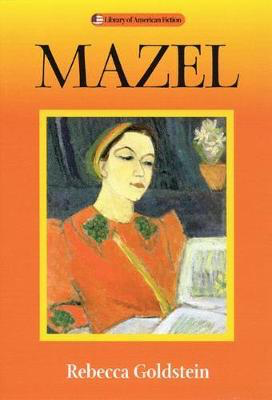
3:16: What was the Spinoza War and why does it still resonate today in particular when considering the relationship of religion and science, church and state and the culture wars seem to be consistent with elements of Jacobi’s nihilism?
RNG: The so-called Spinoza War, or the Spinoza-Krieg, more often called the Pantheismusstreit, or Pantheism Controversy, was a cultural controversy that broke out in the 1780’s in Germany, after Friedrich Heinrich Jacobi launched an attack on the Enlightenment, making Spinoza the central figure. He argued that “consistent philosophy is Spinozist, hence pantheist, fatalist, and atheist.” It was a big deal that divided the German intellectual landscape. Hegel described it as a bolt from the blue. and even Kant had to defend himself against the charge of being a closet Spinozist.Jacobi was vehemently opposed to having the capacity for reason usurp the place of religious authority and tradition and faith. Even a thinker like Kant, who argued the necessity of God to vouchsafe the freedom of will, came under Jacobi’s attack. Kant, too, replaces faith with argument. And, of course, he had famously defined the Enlightenment, in “What is the Enlightenment” as humankind’s reaching its intellectual maturity. And yes, you’re right that this controversy persists to our own day. which is why, in certain quarters, atheism is tantamount to immorality. Jacobi was the first to coin the term nihilism, but he didn’t espouse it. On the contrary, he thought it was the absence of morality to which everybody who rejects the authority of religion must succumb.
3:16: I’m a great fan of Moby Dick – so can you tell us why Ahab is the great literary anti-Spinozaist! (I love your essay on this btw!) And how do you you answer your own question: does Melville side with Spinoza in the end, acknowledging that the structure of reality demands a rethinking of the reality of the self? And do you agree with that conclusion – and if so, what do you think we should think of the self?
RNG: Yes, Moby Dick. What a novel! There were always passages in it that made me suspect that Melville knew his Spinoza, in particular, Spinoza’s views on personal identity, so I set out to trace the trajectory. It goes from the Pantheism Controversy, which made Spinoza such a central figure in Germany a hundred years after his death, and then to England by way of Coleridge, who closely followed what was going on in German intellectual and artistic circles, and himself took to studying Spinoza, becoming preoccupied with Spinoza’s views about personal identity. He wrote about his struggles with Spinozism in his Biographia Literaria, which Melville in turn studied.
Let me just say a brief word about the difficult view of personal identity which Spinoza presents. He requires us to be sufficiently attached to the reality of the self to be motivated to do all the difficult work of understanding, as far as is humanly possible, the true nature of reality in all of its deterministic necessity. But if we are successful in understanding, then, in the end, we will come to identify less with the finite self, a mere implication from the vast implicate order, and rather identify more with the implicate order itself, as more and more of the ideas that constitute Deus sive natura become our own ideas. Our identification with the whole order ought to become so complete that we can accept our own mortality with the kind of equanimity that the person of faith, believing in his own personal immortality, experiences. Therein, in more or less yielding our grip on our own identities, lies our redemption.
It might help to compare what Spinoza is saying about personal identity to what Wittgenstein says near the end of the Tractatus. ”My propositions serve as elucidations in the following way: anyone who understands me eventually recognizes them as nonsensical, when he has used them —as steps—to climb beyond them. He must, so to speak, throw away the ladder after he has climbed up it.” In Spinoza, we follow our own individual flourishing, pushed on by the conatus that constitutes our identity, and when we grasp as much of reality of which we’re capable we see that our identity is not exactly a nothing but not exactly a something either. We must kick the ladder—our identification with our own self—aside. Is this the robust denial of the reality of the self that we associate with Buddhism or with Derek Parfit? Not quite, but close. So that is the aspect of Spinozism with which Melville struggled, just as Coleridge did, finding it difficult to reconcile “personality with infinity.”
Maybe Reality really is inconsistent with the reality of the self, and maybe then, driven by our conatus, we ought to resist Reality. That’s the path that Ahab takes, and it doesn’t end well for him, nor for those under his leadership, who have relinquished their wills to his. After all, why is it even worthwhile to struggle to know Reality, to struggle after anything at all, if the self that’s motivating the struggle is ultimately nothing at all? That seems to be what Ahab is declaring in his most philosophically interesting passages. Those passages strike me as similar to the most philosophically interesting passages in Dostoevsky’s Notes from the Underground, where the narrator rails against 2 +2 =4 as diminishing him. One reason why a writer may turn to fiction with an irresolvable metaphysical dilemma deeply roiling within them is precisely because they feel it to be irresolvable.
That’s the case for me with my fiction. I don’t think Melville gives us an opinion in Moby Dick as to how the dilemma presented by Spinoza ought to be resolved. I think rather that he magnificently dramatizes the dilemma and makes it live inside his readers.The coffin that floats the narrator alone to safety belonged to Queequeg, the “cannibal” who initially had terrified the narrator we’re instructed to call “Ishmael.” (The mystery of personal identity is flagged in the first sentence of the book.) Part of Queequeg’s “frightful” appearance is the result of his being tattooed all over his body with strange hieroglyphics that tell of all the mysteries of the heavens and the earth and a “mystical treatise on the art of attaining truth.” Queequeg, being illiterate, can’t read these symbols he’s covered with, but they’re so intimate to his own sense of himself that, after recovering from a mortal illness, he builds himself a coffin and transfers all the symbols to it—"so that Queequeg in his own proper person was a riddle to unfold; a wondrous work in one volume; but whose mysteries not even himself could read, though his own live heart beat against them.” Melville is a mysterian, and so am I.
3:16: As a philosopher who also happens to be a woman why do you think academic philosophy underrepresents women – and what do you make of the current controversy whereby feminists and transwomen are involved in a high profile and toxic dispute?
RNG: I think research conducted by the philosopher and cognitive scientist Sarah Jane Leslie and her collaborators provides some of the explanation for why women have trouble in fields like philosophy, physics, and mathematics. Here is what they found. There are differences among various academic fields in regard to how importantly innate brilliance is rated as essential to significant achievement. They were then able to negatively correlate, to a significant degree, the rate of emphasis on “inborn brilliance” in a given field to the percentage of women and people of color in that field. The one number predicted the other. The higher the belief in innate brilliance, the lower the percentage of women and people of color. Philosophy, music composition, math, and physics were the fields that most emphasized innate brilliance. It’s not just the culture of brilliance that does us in. It’s that culture together with our being also acculturated to regard women and people of color as possessing less of that mysterious element, genius, than white men. Female success tends to be attributed to dogged diligence rather than inspired genius. Or it might even be attributed to the men in the woman’s life, even if those men aren’t in her field. Any explanation rather than genuine talent.As far as the dispute between feminists and transwomen is concerned, I confess I’m not familiar with the subtleties.

ABOUT THE INTERVIEWER
Richard Marshall is biding his time.
Buy his second book here or his first book here to keep him biding!
End Times Series: the index of interviewees
End Time series: the themes
Huw Price's Flickering Shadows series.
NEW: Steven DeLay's Finding meaning series